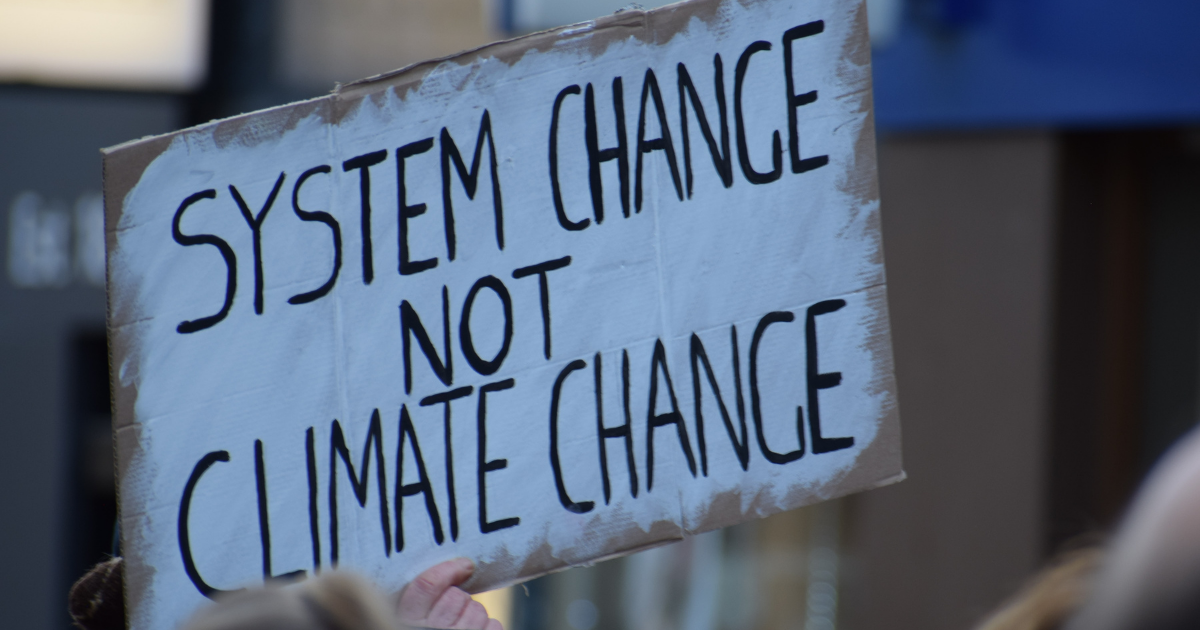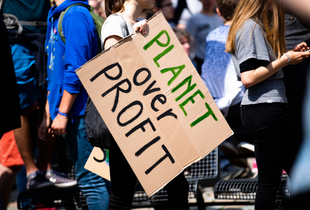Six Ways Businesses Can Leave The Environment Better Than They Found It
 Written by: Elena Dimitrov
Written by: Elena Dimitrov
Media largely covers the numerous negative impacts that business has had on the planet – environmental scandals, mass carbon emissions and large corporations’ failure to hold accountability for their actions.
In this article, we take a proactive view by focusing on the ways in which businesses can do good for the environment. This optimism stems from the view that businesses have more resources and therefore greater potential to positively impact the environment at a large scale than any single individual could. If harnessed correctly, companies may be the power agent we need to alter the trajectory of climate change.
#1: Tie executive compensation to sustainability goals
Senior executives’ compensation comes largely from corporate bonuses, stock options and share awards – rather than a typical salary. The amount that executives are paid out in bonuses is tied to a scorecard that may include metrics such as the company’s financial performance, number of new customers acquired, or customer satisfaction. This presents an opportunity for companies to act on their commitments to climate responsibility by tying their executive pay to environmental metrics.
In 2018, Shell was the first company to link executive pay to carbon emissions. Introducing incentives effectively holds senior executives accountable for the impact of a company’s operations, encouraging not only responsible behaviour but proactive behaviour. Still, progress remains to be made. In May 2021, Shell faced pressure from the Dutch Court to drastically reduce greenhouse gas emissions, requiring a 45% reduction from 2019 levels by 2030. Still, being the first company to introduce such an incentive was a positive step towards accountability and set the example for companies to follow.
In Canada, major bank TD introduced an Environmental, Social & Governance (ESG) scorecard in its compensation plan in 2021. Executives receive a bonus payout based on their ability to meet climate performance, diversity & inclusion, and employee engagement objectives.
#2: Carbon Offset Credits
Companies can purchase carbon offset credits to compensate for their emissions of carbon dioxide. Carbon credits are a tradeable certificate representing the reduction or removal of one tonne of carbon dioxide or other greenhouse gases from the atmosphere, often through activities such as land restoration or planting trees.
Some argue that carbon credits enable further pollution. These tools are often viewed as a ‘band-aid’ solution to climate change that are not sustainable long-term, as carbon offset activities are executed in exchange for emitting carbon dioxide freely. In other words, they compensate for emitting carbon rather than reducing or ceasing emissions.
Nonetheless, we should not be so quick to condemn them. The market for carbon credits must exist to enable the removal of carbon from the atmosphere. If companies did not have the possibility of purchasing carbon credits, this market would not exist. Instead, we suggest that carbon credits simply be made more expensive to ensure they are used only as a last resort.
#3: Take ‘dirty assets’ off their balance sheets, or advocate for renewable energy in cryptocurrency mining
Cryptocurrencies such as Bitcoin, Ethereum or Dogecoin create a large carbon footprint because the process of verifying transactions requires computers to solve complex math problems at high speed – and computers use electricity. The University of Cambridge Bitcoin Electricity Consumption Index estimates that approximately 105.44TW hours of electricity are consumed by the Bitcoin network each year. This is equivalent to the annual output of 23 coal-fired power plants, or the entire energy consumption of Finland.
Electric vehicle manufacturer Tesla was among the companies to hold Bitcoin on its balance sheet, all without realizing the environmental implications of the cryptocurrency. In May of 2021, Tesla founder Elon Musk tweeted that Tesla would no longer accept Bitcoin as payment due to environmental concerns, and the currency dropped 10% in value.
Another alternative is to push for a transition to renewable energy sources in cryptocurrency mining. Currently, only 39% of crypto mining uses renewable sources. By increasing the percentage of energy from renewables and decreasing the percentage from fossil fuels, companies reap the benefits of decentralized finance without straining the planet’s resources. Large companies such as Tesla and Coinbase are encouraged to use their platforms to lead campaigns encouraging miners to transition to renewable energy.
#4: For professional services firms - reduce travel
This is low-hanging fruit. Historically, professional services firms such as lawyers, investment bankers and management consultants have engaged in frequent travel to work more closely with their clients. While the result has been attractive to employees’ Airmiles accounts, the frequent air travel has been less than kind to the planet. Due to the pandemic, companies are learning on their own that they can work just as effectively and maintain close relationships with their clients through virtual work. Efforts to minimize companies’ environmental footprint is expected to accelerate the reduction of non-essential business travel.
#5: Move non-core business functions remote
Businesses can reduce their energy consumption by shifting non-core business functions or departments remote. For example, a restaurant chain or consumer goods company can free up office space by moving their accounting department – a function of the business that is necessary but not core to the company’s competitive advantage – to remote work. In this way, companies can reduce the electricity, heat, and water they consume over time by renting a smaller office and building spaces.
#6: Encourage employee volunteer efforts
Lastly, companies can proactively help to restore the environment in small ways by leading employee volunteer efforts. Office social excursions can include tree-planting or collecting garbage in a nearby park or beach. Moreover, these activities can be expanded to include employees’ families and friends, turning volunteering into a social activity. Though their impact is small, activities such as planting trees have a domino effect by making employees more conscious of how their actions affect the world around them.
Check out more blogs from Scholars' Life writers!

Robo Sapiens: The Mutual Future of Machine and Mankind
Chloe writes about the power of AI and how it could change the future. Read the full article now!

A Letter to Fellow Youth: A Call Out for Hope and Reflections on COP 26
Scholar's writer Christine reflects on the recent global climate summit COP26. Read the full article now!

A Letter From Your Scholar's Life Editor...
Hear from the 2021-22 Scholar's Life Managing Editor, Nathalie! Read the letter now!
Published on

